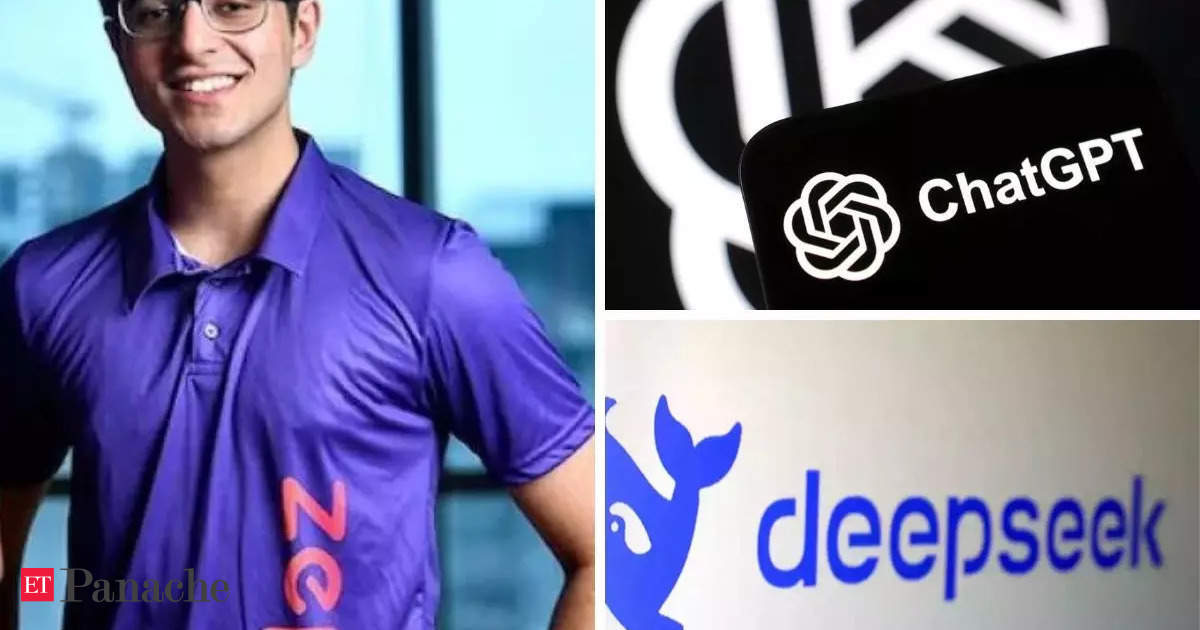Exploring the Absence of Homegrown AI Platforms Like ChatGPT and DeepSeek in India: Insights from the Zepto CEO, a Stanford Dropout

India’s AI Landscape: The Challenges and Opportunities
The launch of DeepSeek’s affordable R1 large language model by a Chinese startup has stirred the global tech scene. This event has sparked discussions about India’s absence of a comparable artificial intelligence (AI) model, such as ChatGPT, despite the country’s reputation for exceptional tech talent. While India’s startup ecosystem is thriving, it still faces criticism for lacking advanced innovation in key areas like AI, machine learning, and robotics.
The State of Indian Startups
Despite the increasing number of startups in India, there are concerns regarding their ability to innovate in cutting-edge technologies. Social media discussions have drawn comparisons between the achievements of Indian startups and those in the US and China. One prominent voice in this conversation is Aadit Palicha, the CEO of Zepto, who has provided insights into the hurdles facing India’s tech industry.
The Insight from Zepto’s CEO
In a recent post on X, Aadit Palicha shed light on why India is struggling to create foundational AI models. He pointed out that the root of the issue lies in the lack of large, profitable internet companies in India. In contrast, American and Chinese tech giants like Amazon, Google, Facebook, Tencent, and Alibaba originally emerged as consumer internet companies. They built their power by harnessing vast amounts of data, attracting top talent, and securing financial backing.
Palicha believes that while criticisms of Indian startups are common, companies like Zepto have made significant strides in their short existence. Founded just 3.5 years ago, Zepto supports approximately 1.5 lakh livelihoods, contributes over Rs 1,000 crore in annual taxes, and has drawn in more than a billion dollars in foreign investments. The company is also making significant investments in modernizing India’s fragmented backend supply chains.
Palicha recognizes that Zepto still has a long journey ahead to become a globally competitive internet entity. However, he remains dedicated to reinvesting in innovation to create long-term value for India’s digital economy. He emphasizes that as the Indian startup ecosystem matures, the focus should shift to developing resilient companies that can generate capital, paving the way for India to lead in future technological advancements.
Comparing India and China’s Startups
Recently, Sridhar Vembu, the founder of Zoho, shared an infographic on X that compares the startup landscapes of India and China. This graphic sheds light on differing priorities in both countries’ entrepreneurial ecosystems.
Key Differences in Startup Focus
- Consumer-Centric Models: Indian startups tend to concentrate on consumer-driven services, such as food delivery, grocery apps, and influencer-led entertainment.
- Deep-Tech Investments: In contrast, Chinese startups are heavily investing in advanced technologies such as electric vehicles (EVs), artificial intelligence, semiconductors, and robotics.
The infographic suggests that while India’s startup culture is leaning towards convenience and entertainment, China’s focus on developing advanced technology and infrastructure could position it for a stronger global presence.
Government Perspectives on Innovation
Commerce and Industry Minister Piyush Goyal has echoed similar sentiments regarding India’s innovation landscape. At a recent Startup Mahakumbh event, he encouraged Indian startups to broaden their ambitions beyond areas like instant delivery and trendy products, suggesting they pivot towards high-tech fields such as semiconductors, robotics, AI, and advanced manufacturing.
Goyal highlighted the importance of directing domestic capital into innovation that looks towards the future. He warned against the risk of becoming a mere service economy catering to foreign firms. Instead, he called for an evolution in Indian startups to ensure they aim for global competitiveness and prepare for upcoming industry developments.
The Rise of Zepto
Founded in 2021 by Aadit Palicha, who was only 17 at the time, Zepto began as a bold venture during the COVID-19 pandemic. With a background in computer science and a brief period at Stanford University, Palicha left his studies to create a meaningful business in India. Zepto launched its first warehouse in Mumbai’s Bandra area and has since expanded, boasting a vast network of dark stores and over 50,000 delivery partners across numerous cities.
The journey of Zepto serves as a reflection of India’s vibrant startup ecosystem, showcasing both its potential and the challenges it faces in becoming a dominant player in the global tech market.






